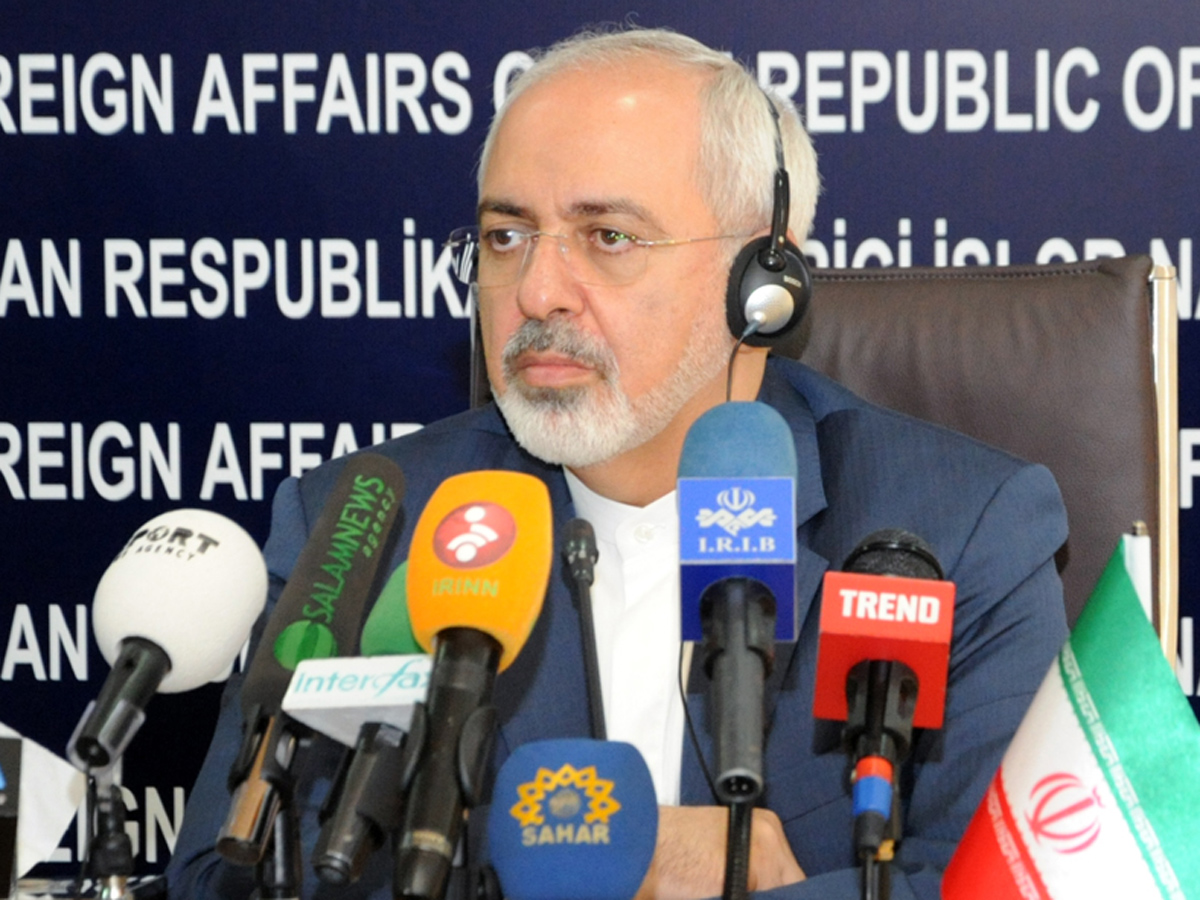Tehran, Iran, August 9
By Mehdi Sepahvand - Trend:
Iranian Foreign Minister Mohammad Javad Zarif has said the recent deal on the country's nuclear program does not lay any restriction on Iran's missile-building activities.
Speaking in a conference in Tehran with a diplomatic team to discuss the deal, Zarif said the deal turns former missile-related sanctions into mild restrictions.
Iran's missile program was restricted through United Nations Security Council Resolution 1929, one of the harshest so far imposed on the Islamic Republic.
Resolution 1929, adopted on 9 June 2010, after recalling resolutions 1696 (2006), 1737 (2006), 1747 (2007), 1803 (2008), 1835 (2008) and 1887 (2009) concerning the topics of Iran and non-proliferation, the Council noted that Iran had failed to comply with previous Security Council resolutions concerning its nuclear program and imposed further sanctions on the country.
Acting under Article 41 of Chapter VII of the United Nations Charter, the Council determined by imposing Resolution 1929 that Iran could not participate in any activities related to ballistic missiles. It also imposed a ban on all countries providing certain types of military vehicles, aircraft or warships and missiles or missile systems and related materiel to Iran. The Resolution also fixed a ban on training, financing or assistance related to such arms and materiel and restraint over the sale of other arms and material to Iran. It also included a travel ban on individuals listed in the annexes of the resolution, with exceptions decided by the Committee established in Resolution 1737. Resolution 1929 also included the freezing of funds and assets of the Army of the Guardians of the Islamic Revolution and Islamic Republic of Iran Shipping Lines.
Resolution 1929 was one of the harshest ones against the Iranian nation, while Resolution 2231 was one of the greatest victories for Iran, Zarif said.
He pointed out that according to the deal, Iran is banned from making missiles that can carry nuclear warheads not just all sorts of warheads.
Deputy Foreign Minister Abbas Araqchi said in a press conference here July 22 that the country's nuclear agreement will leave no sanctions on the country's arms dealing.
Under previous sanctions, Iran could sell no arms whatsoever or purchase any of the seven types of weapons enumerated in the sanctions, he said.
But the newly instated restrictions say Iran will have to acquire permission from the UN Security Council for any arms deal it would like to make, according to Araqchi.






